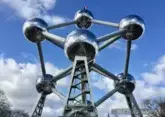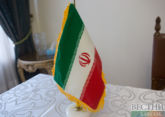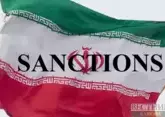When Iran’s President Rouhani announced last week that his country would be partially withdrawing from the the nuclear deal, also known as JCPOA (Joint Comprehensive Plan of Action, he left many scared. However, it wasn’t a withdrawal as Iran in only crossing limits for enriched uranium (LEU) and heavy water which are permitted under clauses 26 & 36 of the deal. The Middle East Monitor reports in its article Drugs and refugees: Will Iran follow through with it’s threats to the EU? that his announcement came months after US President Donald Trump unleashed “unprecedented” sanctions on Tehran.
As a result of the sanctions, and the renewed pressure on the Iranian economy, Rouhani announced that he would no longer be able to sustain the country’s counter-narcotics initiatives. The cessation of such policies threaten to flood the European illegal drug trade as drugs grown in areas governed by the Taliban in Afghanistan are smuggled through Iran and Pakistan to cartels in Europe. According to the UN Office of Drugs and Crime, in 2012 Iran accounted for 74 per cent of global opium seizures and 25 per cent of global heroin and morphine seizures. Since 21 March this year, in Tehran alone 2.6 tonnes of narcotics have been seized.
Deputy Director of the MENA Program at European Council on Foreign Relations (ECFR) Ellie Geranmayeh says Rouhani’s statement underscore that Iran can no longer bear the cost of basically giving security to Europe, through it’s fight against narcotics and the flow of refugees from Afghanistan. Iranians are making a direct link between their economic collapse and direct security interests with the Europeans, she explains, adding that this is something that perhaps up to now the Europeans haven’t taken very seriously.
But lax anti-narcotics enforcement wasn’t the only threat. Rouhani added that the refugees won’t be stopped from going towards Europe. The same evening Iranian Deputy Foreign Minister Abbas Araghchi said that if the economic situation further deteriorates (due to the sanctions), then the Afghan refugees would be asked to leave. The comments caused instant outrage on social media in Afghanistan. Tehran was accused of using Afghan refugees as political tools.
Iranian-American journalist Negar Mortazavi doesn’t believe the Afghan refugees’ status in Iran is under threat. “I don’t think they are going to be expelled. But then at the same time it’s not a very crazy argument because a lot of the resources go to the migrants and refugees and their resources are limited, part of the Iranian population might actually demand that the government prioritises.”
It is a considerable population – the number of Afghan refugees. Iran is actually hosting the largest number of refugees in the region and arguably the world. And there are a lot of state resources that go to the migrant and refugee population, so it is a heavy cost for the Iranian government. “But I also think this is a threat directly to Europeans because they’re going to be affected by a large number of migrants and refugees if they get expelled.”
This isn’t the first time that EU has been put under pressure over refugees. At the height of the Syrian war, in 2016, Turkey finalised a deal with Europe which saw it quell the number of refugees and migrants travelling to Greece from its shores. A service the EU is paying Turkey $6 billion a year for.
Given the increasing rise of right-wing governments in Europe, according to Dina Esfandiary, International Security Program Research Fellow at the Harvard Kennedy School’s Belfer Center, Rouhani was aiming at something that “hits home for Europeans”.
Tehran wanted to “highlight how up until now Iran has been helpful in terms of this issue and refugee flows and they really want to highlight that they have a good player on this issue, and that if they weren’t, it would make things considerably more difficult for Europe.”
Given the amount of economic pressure Tehran is now under as a result of the increasing sanctions, it may well follow through with its threats.. If EU wants a solution, it doesn’t need to pay Iran €6 billion per year. Those funds would not help the oil rich state overcome its economic woes. But if trade is established with Tehran, then we may see light at the end of the tunnel. This, however, is easier said than done and the EU would have to do a lot of heavy lifting for it.










